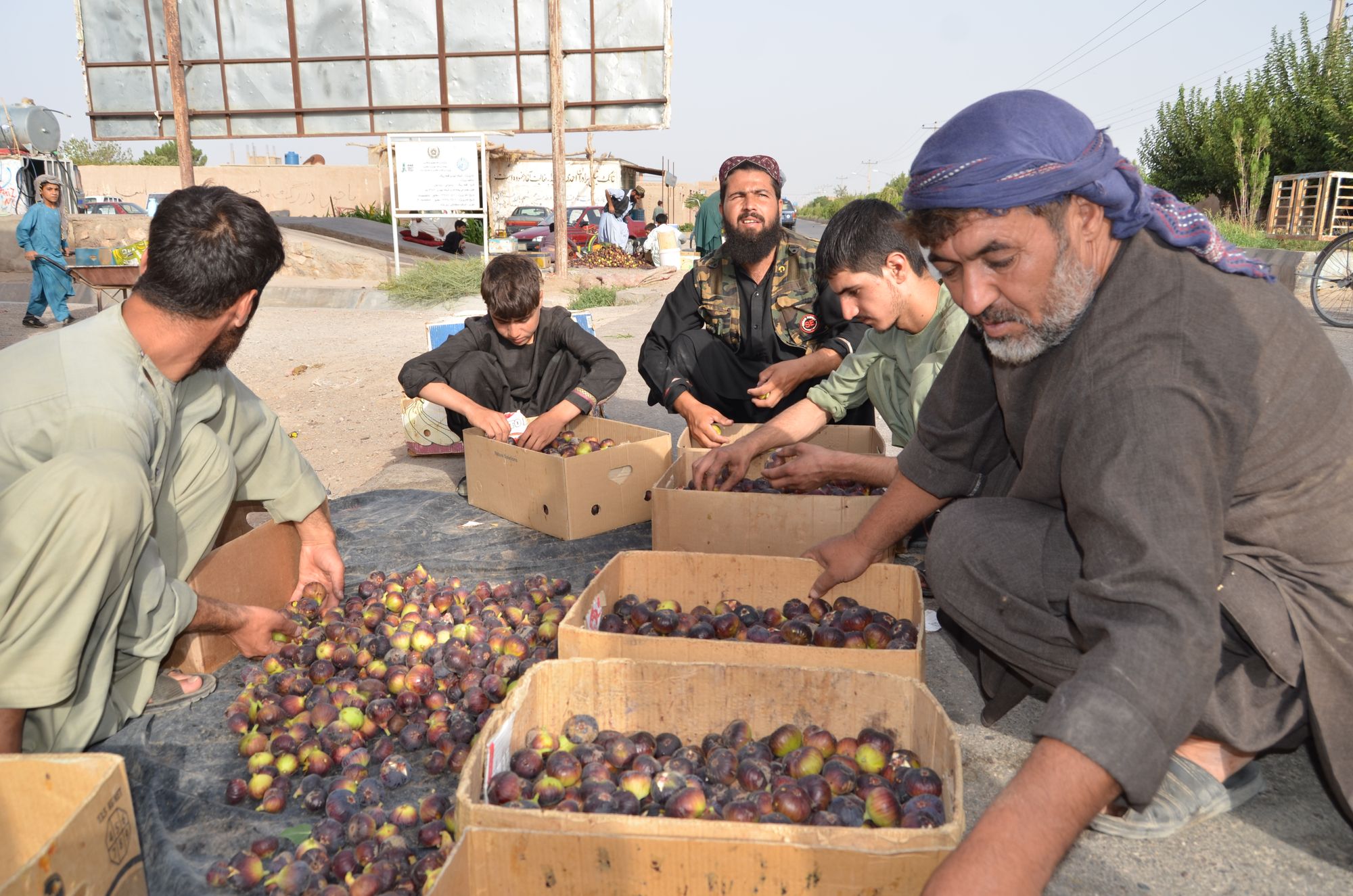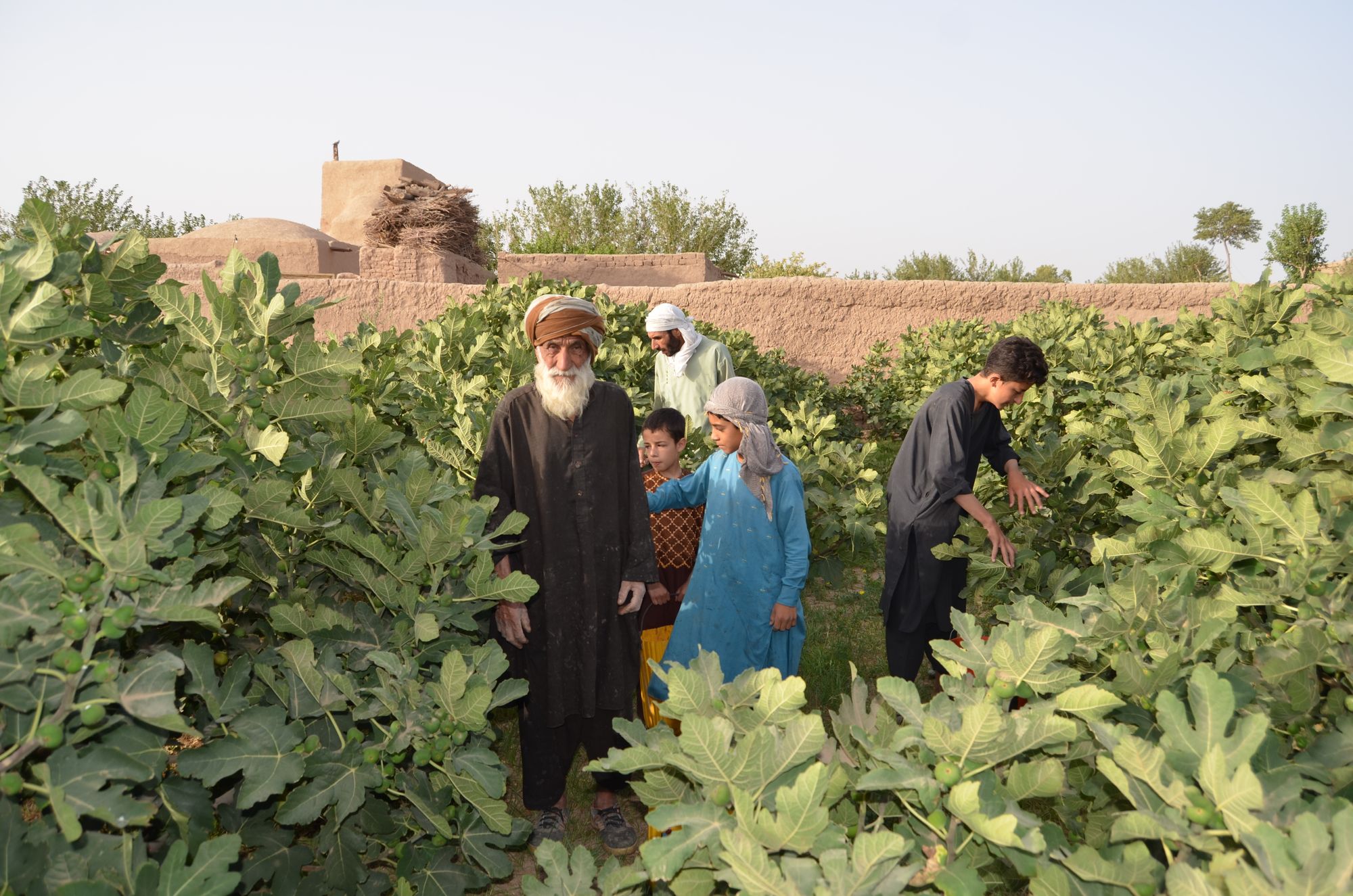Figs Are Not Enough
Farmers in Zinda Jan, the district that accounts for the majority of figs produced in Afghanistan’s Herat province, lament the lack of demand and inaccessibility to international markets.

Written by Abdul Karim Azim
ZINDA JAN, HERAT — Afghanistan is famous globally for both its fresh and dry organic fruits. The country’s rural areas are and have largely dependent on and get its main source of income from agriculture and livestock. This is the same for the western Afghanistan’s Herat province where farmers grow a variety of fruits, including figs.
Many farmers in Zinda Jan, a district in Herat, make a living out of growing and selling figs. According to Herat’s Chamber of Commerce for Agriculture and Livestock, more than 400 hectares of land in Herat is dedicated to fig farming, with 85 percent of it located in Zinda Jan district.
Basir Ahmad Ahmadi, also known as Kaka Basir, is an expert farmer who has been farming figs for the past 20 years. Through his business he feeds his family of eight. The farmer is a resident of Qala-e Reg in Zinda Jan.
Although fig produce increased by 25 percent this year, a lack of demand and sales forces farmers to sell their produce at half the price they sold it the year before. Some members of the Fig Farmers’ Association of Herat say that lack of support from the government has caused them tremendous loss.
Kaka Basir told Alive in Afghanistan, “Lack of marketing and unavailability of cool storages are the main issues fig farmers are facing.” Other issues are lack of water, and the high cost of fertilizers.
“We have to buy fuel to pump water out of the wells,” Basir said. This only adds to the cost for farmers.
Basir added that if the farmers had access to cool storages, they could store their products longer and wouldn’t have to sell them quickly out of fear of the produce rotting.
“I have about 800 meters of land that I inherited from my father. I make around 100,000 to 150,000 Afghanis ($1,143 to $1,714) from it each year,” Basir said.
“Each kilogram of Zinda Jan’s figs are sold for 60 Afghanis (approximately .68 USD), but when Herat’s fig season ends, Iranian figs are sold for 120 Afghanis per kilo,” Basir said, adding, “We work very hard to get a good harvest. We irrigate, spray pesticides, add fertilizers and bear a ton of other costs. We want the government to facilitate the exportation of our products both in-country and abroad, so we can sell for higher prices.”

With the help of laborers he picks around 200 to 220 kilograms of fig daily and sells them in the Zinda Jan bazaar. According to Basir, each fig farm employs five people who work from 5 to 8 am and are paid between 100 to 150 Afghanis ($1.14 to $1.71) each for three hours of work.
Kaka Basir owns a mill and is a cook in addition to being a fig farmer. He says the income from his farm will not make ends meet due to the high cost of living.
“I run a mill and pay 1,000 Afghanis ($11.43) per month for the rent of that store,” Kaka Basir said. He added that cooking was a busy job but paid well before the collapse of the previous Afghan government, however, customers have faltered since.
“I used to cook six days a week,” Basir said.

Abdul Salam is an old man who also works as a fig picker, he is paid between 80 to 100 Afghanis ($0.91 to $1.14) a day. He has a family of 8 and his oldest son is a laborer in Iran. According to him, his oldest son sends him money once in a while to help his family with their expenses.
In addition to picking figs, he is a daily laborer who has experience shepherding and gardening. Salam asked the Taliban government to provide jobs for people and wants foreign aid organizations to help those in need.
Mohammad Gul, is one of the laborers working for Kaka Basirho works at the fig farm, picksing about 15 kilograms of fig per day. He gets paid 100 Afghanis and provides for his family through daily labor.
“Unemployment is high and I have no other option but to work here for minimum wage. At least I can buy some bread with it and provide for my children,” Gul said, adding that poverty and unemployment are at peak while food prices are skyrocketing while the government appears unconcerned.
“We need to make money by any means,” he said, asking the Taliban government to create jobs for Afghans and the international community to pay attention to the people of Afghanistan.
“I am willing to do any kind of hard labor just so I don’t return home empty handed,” Gul told Alive in Afghanistan.
